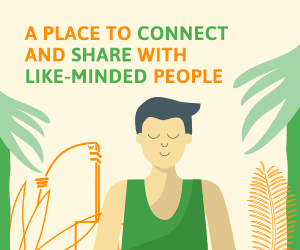It’s a fact; the art of practising gratitude can make you happier, healthier and improve your personal relationships. Victoria Haynes looks at the many benefits, and finds some great ways to cultivate the gratitude attitude.
Taking the time to be grateful makes a real difference to your daily life. I try to practise the attitude of gratitude as often as possible, and every time I do, I get a little happiness boost.
I’m not talking about grand gestures, either; simply thanking someone for holding a door or giving flowers to show my appreciation are all it takes. Knowing I’ve made someone feel good, and seeing their reaction has the power to take my day to the next level.
Expressing gratitude in times of crisis is especially important. The Covid-19 pandemic has left people around the globe feeling anxious and hopeless, but if you look closely enough, pockets of gratitude have been popping up everywhere.
Around the world hard-working frontline staff have been celebrated with rounds of applause while caring community members have sacrificed time to create much-needed PPE for teams that have been saving lives and caring for the sick. Gratitude has helped to unite communities and give hope where it seemed like there has been none.
In fact, as humans, we’re programmed to focus on the negative aspects of life, so it’s not always easy to find things to be grateful for. At the end of a bad day, it can seem impossible to sit down and feel thankful – which is why we need to change our thinking. Choosing to focus on the positives and enjoy the little things, even when times are tough, is the key to cultivating a long-lasting attitude of gratitude.
Attitude of gratitude: the benefits
There are many scientifically-proven benefits to practising gratitude regularly. From obvious things, such as increased happiness and better relationships, to more surprising positives such as improved sleep patterns, here’s our top six reasons to harness the gratitude attitude.
1. Increased personal happiness
Being thankful makes you feel great, and it’s an easy way to get a natural high and reduce negative emotions. It’s not just about you, though; gratitude is a beautiful two-way transaction. Expressing and receiving thanks encourages our brains to release happiness hormones such as dopamine and serotonin, giving us a sudden burst of joy. 
Journaling for gratitude shutterstock/WAYHOME studio
And it’s more than just speculation. In 2009 scientists conducted a study at the National Institute of Health (NIH) into the effects of gratitude on brain activity, and the results were overwhelmingly positive. Subjects showed increased activity in the hypothalamus – the area which releases those feel-good chemicals – when they practised gratitude. Indeed, it’s scientifically proven that an attitude of gratitude has the power to rewire your brain.
2. Deeper relationships
As well as making you feel good, adopting a gratitude attitude can build and strengthen relationships with others. It’s easy to fall into the trap of taking those close to you for granted, so remembering to thank your nearest and dearest can do wonders for your relationships. It works in two ways; remembering to be grateful makes us more appreciative of our partners, family and friends, while at the same time creating a cycle of gratitude. The more likely we are to express our thanks, the more likely we are to receive it.
“Choosing to focus on the positives and enjoy the little things, even when times are tough, is the key to cultivating a long-lasting attitude of gratitude.”
This isn’t just limited to loved ones, either – expressing gratitude in the workplace can lead to better communication and productivity. Research carried out at the Wharton School at the University of Pennsylvania found that fund-raisers who had been thanked for their efforts made 50 per cent more fund-raising calls than those that hadn’t.
3. Improved patience and decision making
You might not naturally link the two together, but striving to be a grateful person is a great way to improve your patience and decision making levels as well. We live in an age where we’re encouraged to aim for more of everything; bigger houses, more holidays, a better paid job. Many people want it all and they want it now!
Studies have shown that people who happen to be more grateful, also tend to be less impatient and make better decisions. The thinking is that the more able you are to see the positives in your current situation, the less likely you are to crave new short-term gratification.
4. Boosted resilience
Being grateful changes your entire outlook on life. It gives you the ability to thrive under pressure, make the best of difficult situations and allows you to find the good in an otherwise terrible day. With patience, you can train your brain to focus on the positives rather than the negatives, giving you the confidence to deal with any kind of adversity.
Researchers at Georgia Southern University have proven the theory. They took two groups of people, and asked only one of them to perform a gratitude-based exercise. The group who were assigned the gratitude task reported to have experienced more resilience and coping skills during the experience than the group who hadn’t participated.
5. Reduced anxiety and depression
If gratitude can make you happier, it stands to reason it can have a positive impact on mental health problems. If you're living with anxiety or depression, it’s possible that adopting an attitude of gratitude and focusing on the positives could play a vital role in recovery.
Aside from encouraging the production of both dopamine and serotonin, gratitude practice reduces the production of stress hormones. In 1998 McCraty et al conducted an experiment into emotional self-management and stress. Their findings showed that there was a 23 per cent reduction of cortisol – a stress hormone – in the experimental group, who had been instructed to take part in an appreciation exercise. 
Express thanks with gifts or letters shutterstock/StudioByTheSea
Another study discovered that the act of gratitude writing was incredibly beneficial to mental health. Researchers asked participants to either write letters of gratitude, note down their most negative experiences, or write nothing. They found that the group who took part in writing gratitude letters reported better mental health several weeks after the study had been completed.
6. Better physical health
It’s been scientifically proven that people who practice expressing gratitude regularly also enjoy better physical health. A gratitude attitude is the secret to enjoying less pain, better sleep, less stress and more energy. People who focus on the positives in life tend to be more relaxed and are far happier than those who don’t.
“If you're living with anxiety or depression, it's possible that adopting an attitude of gratitude and focusing on the positives could play a vital role in recovery.”
Sounds too good to be true, right? Then let the science convince you. In 2003 researchers Robert Emmons and Michael McCullough carried out an investigation into whether gratitude had a positive effect on daily life and well-being. The students who took part and kept a gratitude journal for two weeks went on to report less headaches and other physical ailments than the group who were asked to write about negative events.
How to cultivate the gratitude attitude
Harnessing an attitude of gratitude doesn’t have to be difficult. At first, it might seem tricky to retrain your brain to look for the positives rather than allow it to focus on the negatives, but the more you practice, the more obvious it will become. Try some of the following methods:
-
Gratitude journals
Keeping a gratitude journal doesn’t mean you have to write pages and pages every day. It could be as simple as starting the day by noting down things you’re looking forward to, or ending it by recording a few positive events that happened. The aim is to simply lead your brain away from any negatives.
-
Expressing thanks to family and friends
It might sound basic, but just the act of saying thank you to your closest family and friends is a great place to begin on your quest for a gratitude attitude. We often forget to express gratitude for the everyday things – so start now!
-
Writing letters
Thankful for something? Write someone a letter and tell them how grateful they are, and how much of an impact they’ve had on your life.
-
Meditating on gratitude
If you already practice meditation, you’re halfway there. Meditating on gratitude is the art of sitting quietly and concentrating on all the things you’re thankful for.
The gratitude attitude: conclusions
It’s scientifically proven that gratitude has the power to change your life. Increased health and happiness, better interpersonal relationships and a boost to your brain power – what could be better? Grab that notebook and start your gratitude journal today. ●
If you're interested in learning more about cultivating a more grateful approach to life, consider enroling in our 10-day online course, Mastering the Attitude of Gratitude.
happiness.com | The fine art of being: learn, practice, share
Are you a happiness.com member yet? Sign up for free now to:
■ enjoy our happiness magazine
■ share and support in our happiness forum
■ learn with free online Academy classes
Written by Victoria Haynes
 Victoria Haynes is a freelance writer from the South Coast of the UK, who loves nothing more than a strong cup of tea, a good novel and the great outdoors.
Victoria Haynes is a freelance writer from the South Coast of the UK, who loves nothing more than a strong cup of tea, a good novel and the great outdoors.





Join the conversation
You are posting as a guest. If you have an account, sign in now to post with your account.
There are no comments to display.